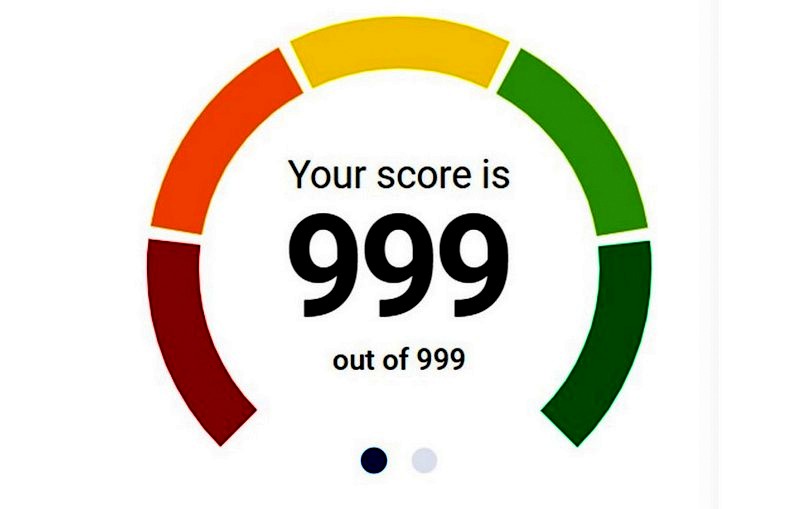Big Brother is watching you – at least as far as your credit score is concerned.
Like our DNA, we all have a credit score but what does it mean?
If you want to open a bank account, lease a car, get a mobile phone contract, take out a credit card, get a loan or take out a mortgage your success will depend on your credit score. Find out how it’s calculated and how you can improve it.
In the distant past, if you wanted to borrow some money you made an appointment to see your bank manager. You dressed up smartly and he (it was always a “he” in those days) grilled you about your savings, your prospects and suitability. A neat haircut and a smart suit helped. Today it’s all down to the computer and if she says “No” then you don’t stand a chance.
The computer’s decision is often based on your credit score. And we all have one whether we like it or not. In fact, if you have no financial history at all you are likely to have an extremely low credit score.

Credit scores are compiled by Credit Reference Agencies and in the UK, there are three; Experian, Equifax, and TransUnion. They all store data about us which they collect from financial services companies and local authority data. They don’t all necessarily have the same information and their scores can be calculated differently so their reports may not be identical.
A credit report will include your name, address, previous addresses, date of birth, the name of any other person you have financial links with, details of all the accounts you hold and your financial history over the past six years. It will show any County Court Judgements against you and if you have been late in making or have missed any of your payments. This information will then be used to compile your credit score.
When you apply for a loan or take out a mobile phone contract the business you are dealing with will check your credit rating before deciding to make the loan or provide the phone. So it’s important that you keep an eye on your credit rating and do what you can to keep it as high as possible.
To develop a good credit rating it is important that you pay you bills on time. Any delays of missed payments will count against you. Also a lack of any financial history can impact on your score. It’s advisable to have a bank account and maybe at least one credit card, ensuring you keep up to date with your payments. It is also important that your address and identity can be confirmed so, if you are over 18, ensure you are recorded on the local authority’s electoral roll even if you don’t want to vote at elections.
It is also advisable to check your credit score from time to time. You need to be sure the information recorded is accurate and correct any errors that may have crept in. It’s also a way to spot whether someone is attempting to steal your identity. If you see any accounts you don’t recognise you should check them out urgently.
All the Credit Reference Agencies are obliged to provide you with a copy of your credit report free of charge. You will need to visit their website and search for the free report option. Sometimes you have to search quite hard to find the free version because they would prefer to sell you a paid for service, but this is not really necessary.
You can also sign up for free monthly updates. Experian offers an app that provides you with a monthly update of your credit score. There is also a similar and slightly more detailed service available from moneysupermarket.com . Their data is provided by TransUnion and is in a different format from Experian but is very comprehensive.
They provide the information free of charge because they hope you will use some of their other services, but both these options are extremely useful and without any financial obligation.
So to conclude, the message is clear; value your credit score, monitor it regularly and take steps to improve it.
